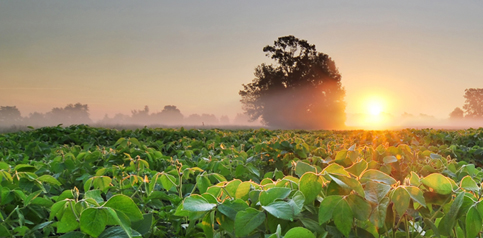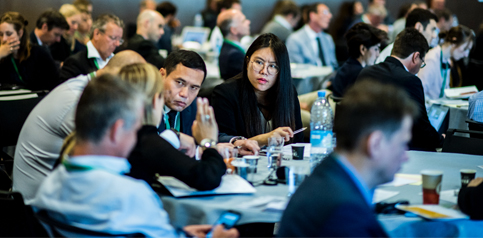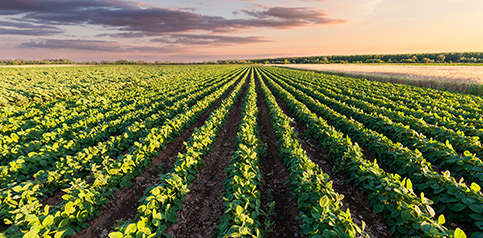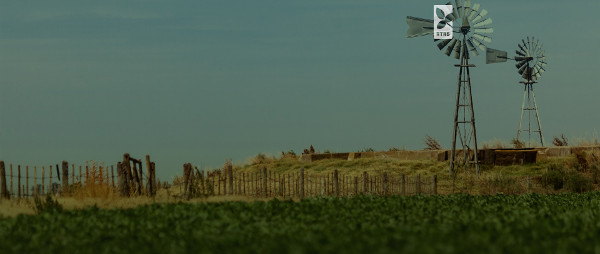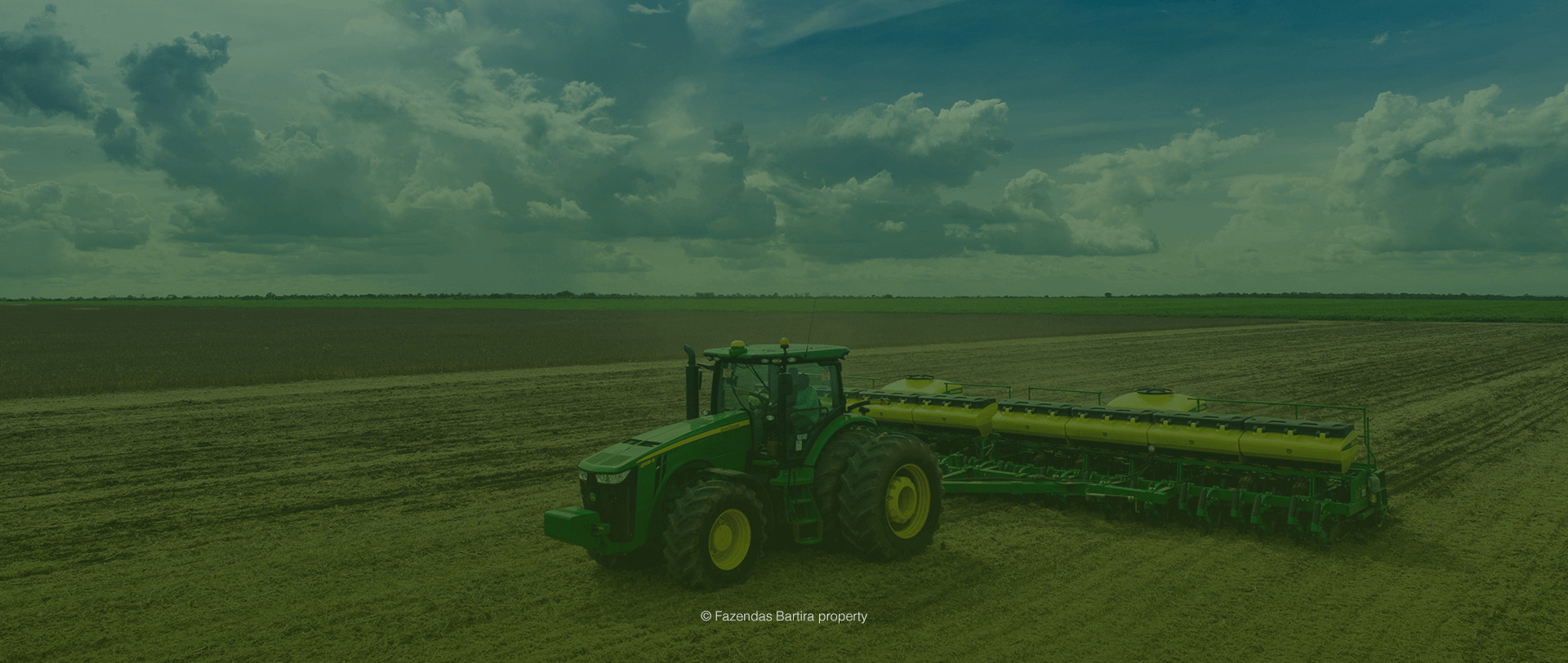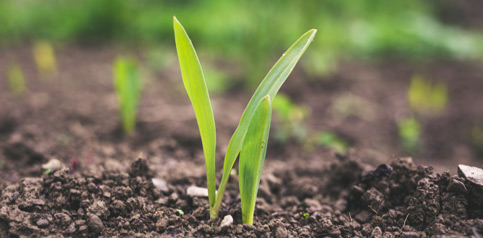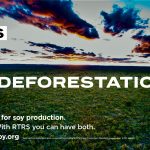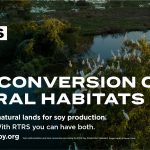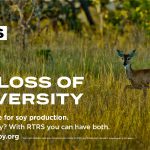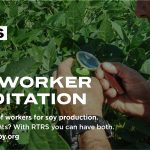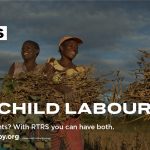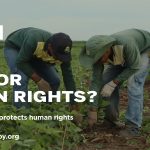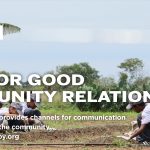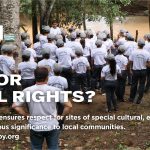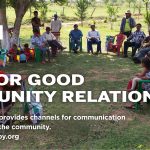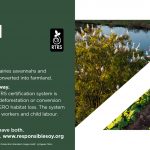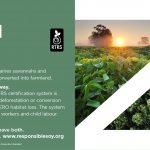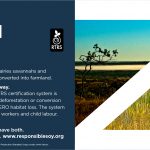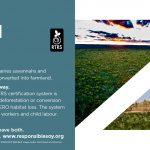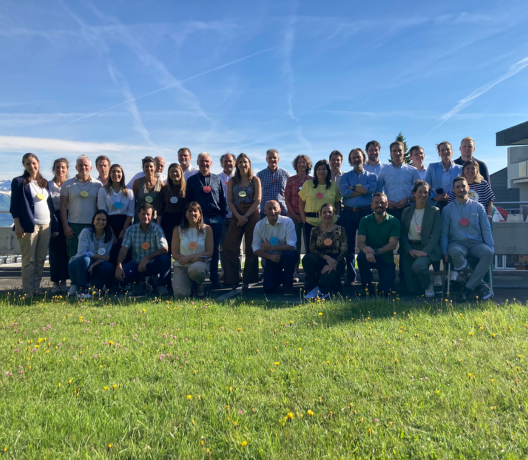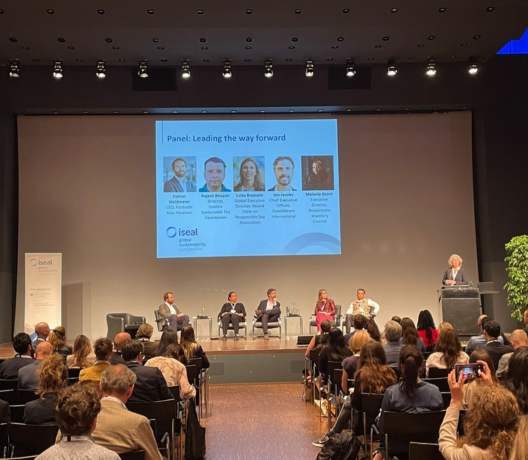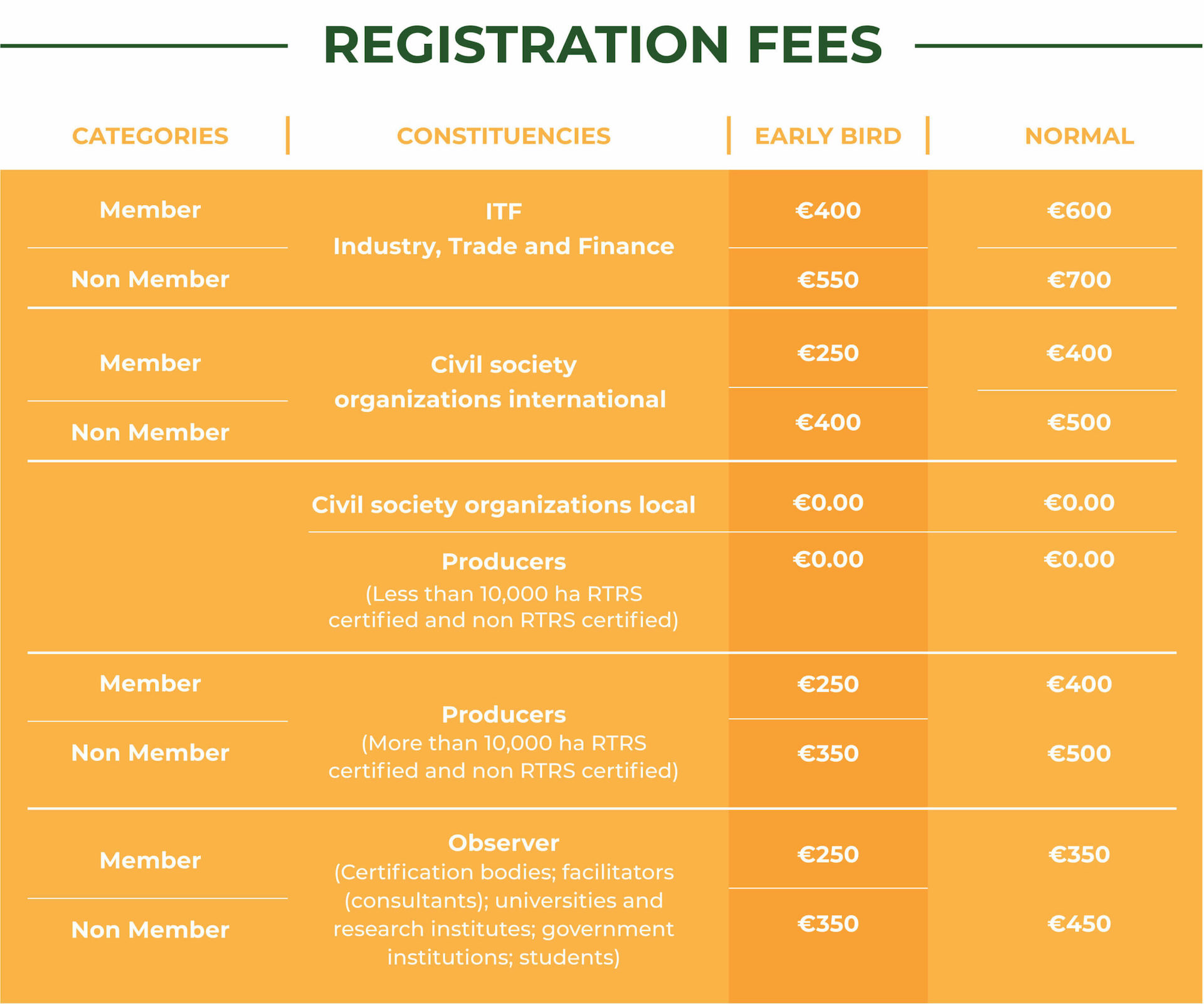Beyond deforestation
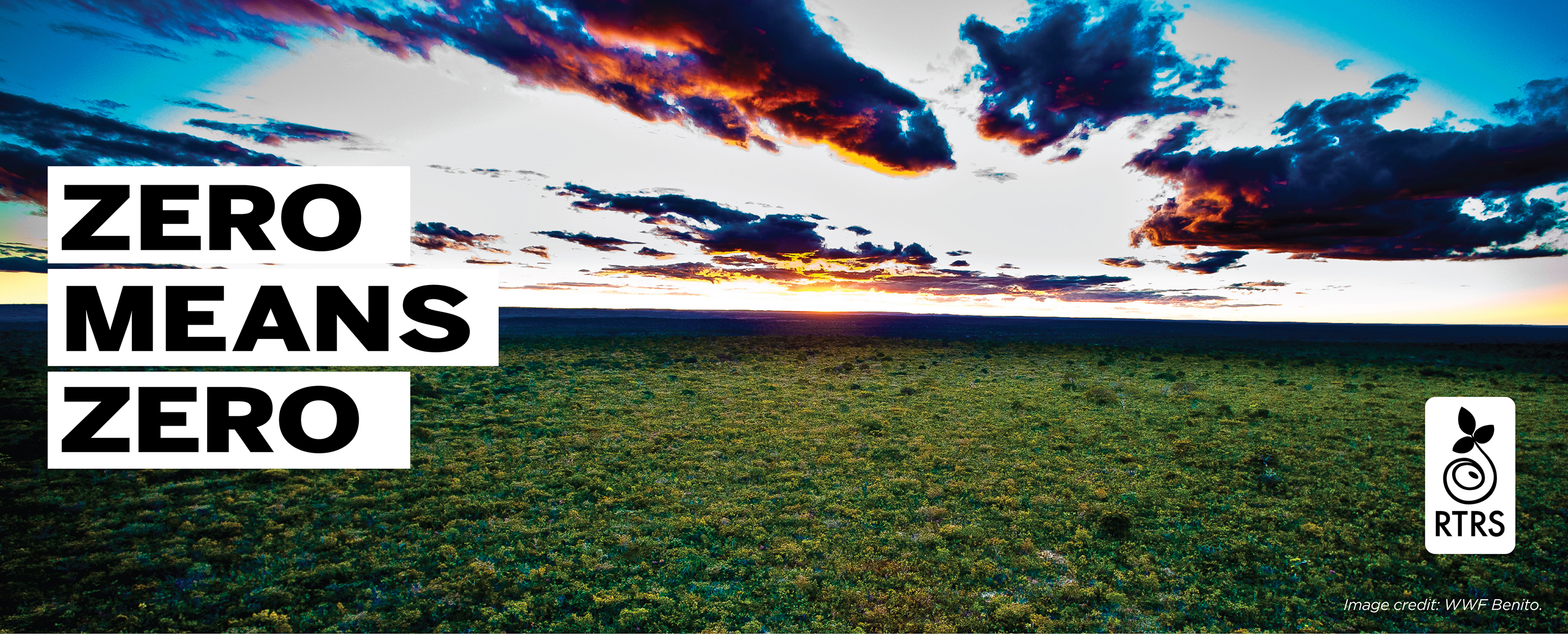

Deforestation and the conversion of natural lands for agriculture production are currently topics of major global concern.
Soy – a source of protein for humans and used in livestock feed – is understood to be one of the major drivers of deforestation and habitat conversion, particularly in Argentina, Brazil and Paraguay.
For over a decade, many different stakeholders in value chains for different commodities have been striving to find the best approach to tackle deforestation in supply chains, though the results have fallen short of expectations.
Based on the latest report by IDH, the European Soy Monitor, released in 2019 with 2017 data, only a 13% (4.5 million tons) of the total soy used in EU countries (34.4 million tons) were certified by deforestation-free standards.
RTRS understands that, though not the silver bullet, soy certification is a valuable and holistic (economic, social and environmental) instrument that is already in place and promoting sustainable agricultural practices on the ground. More specifically, it delivers on today’s hot topic: verified zero deforestation and zero conversion soy [1].
The need to solve pressing issues brings its own share of dilemmas and challenges. Deforestation is the hot topic of the day; we all agree on this. But, what about sustainability as a whole? Beyond deforestation and conversion, legal compliance, good business and agricultural practices, responsible labor conditions and community relations are all elements that should be equally considered in delivering riskless soy supply chains.
RTRS offers a soy certification standard with zero deforestation and zero conversion explicitly stated in its criteria. This means that no conversion of any natural land, steep slopes and areas designated by law to serve the purpose of native conservation and/or cultural and social protection is allowed.
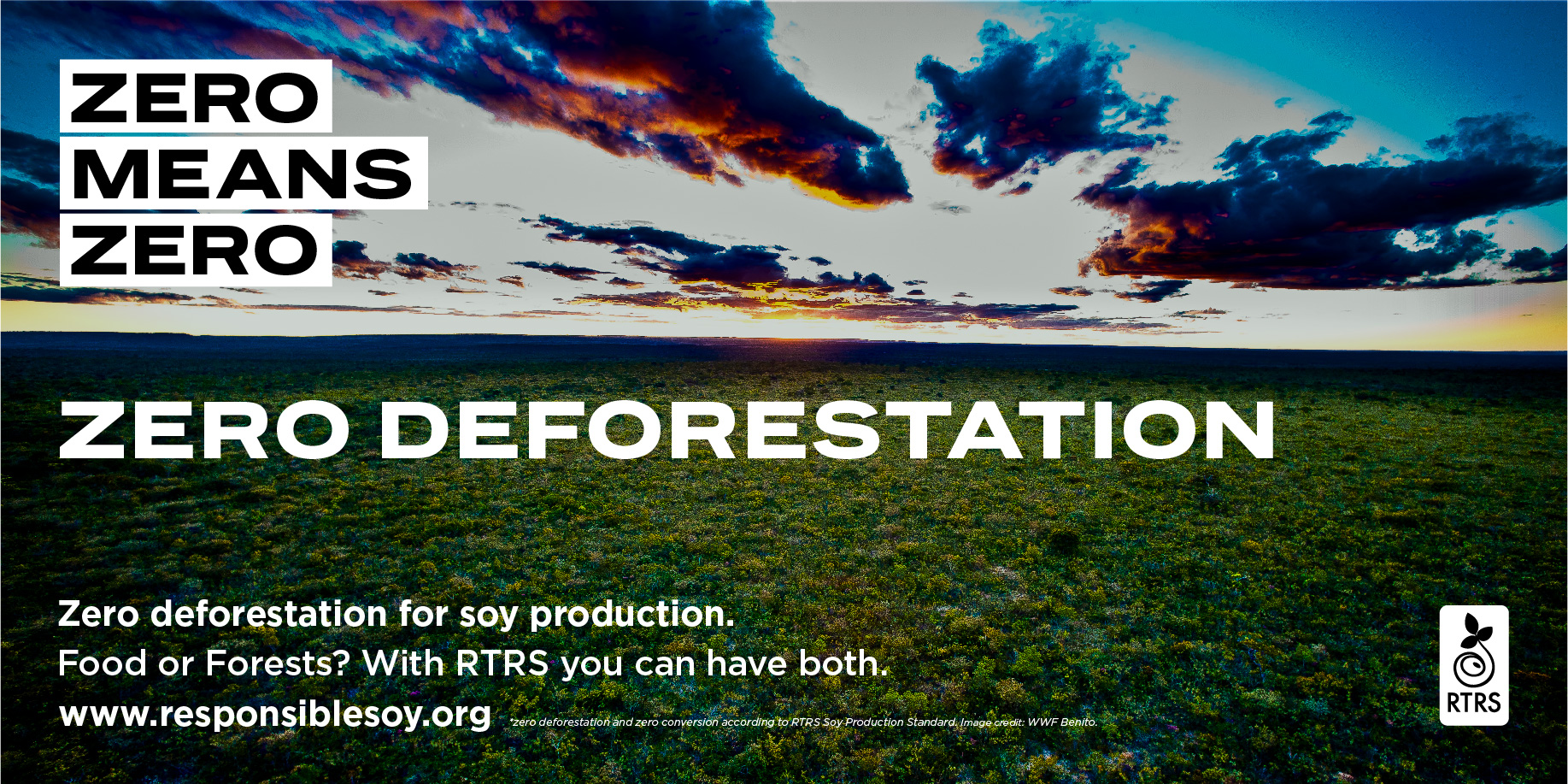

In addition to the above, the RTRS certification system is a truly holistic approach that guarantees responsible business and agricultural practices, preserving biodiversity [2], soil and water and protecting human and workers’ rights, all while respecting the customs and cultures of indigenous peoples and improving the well-being of local communities.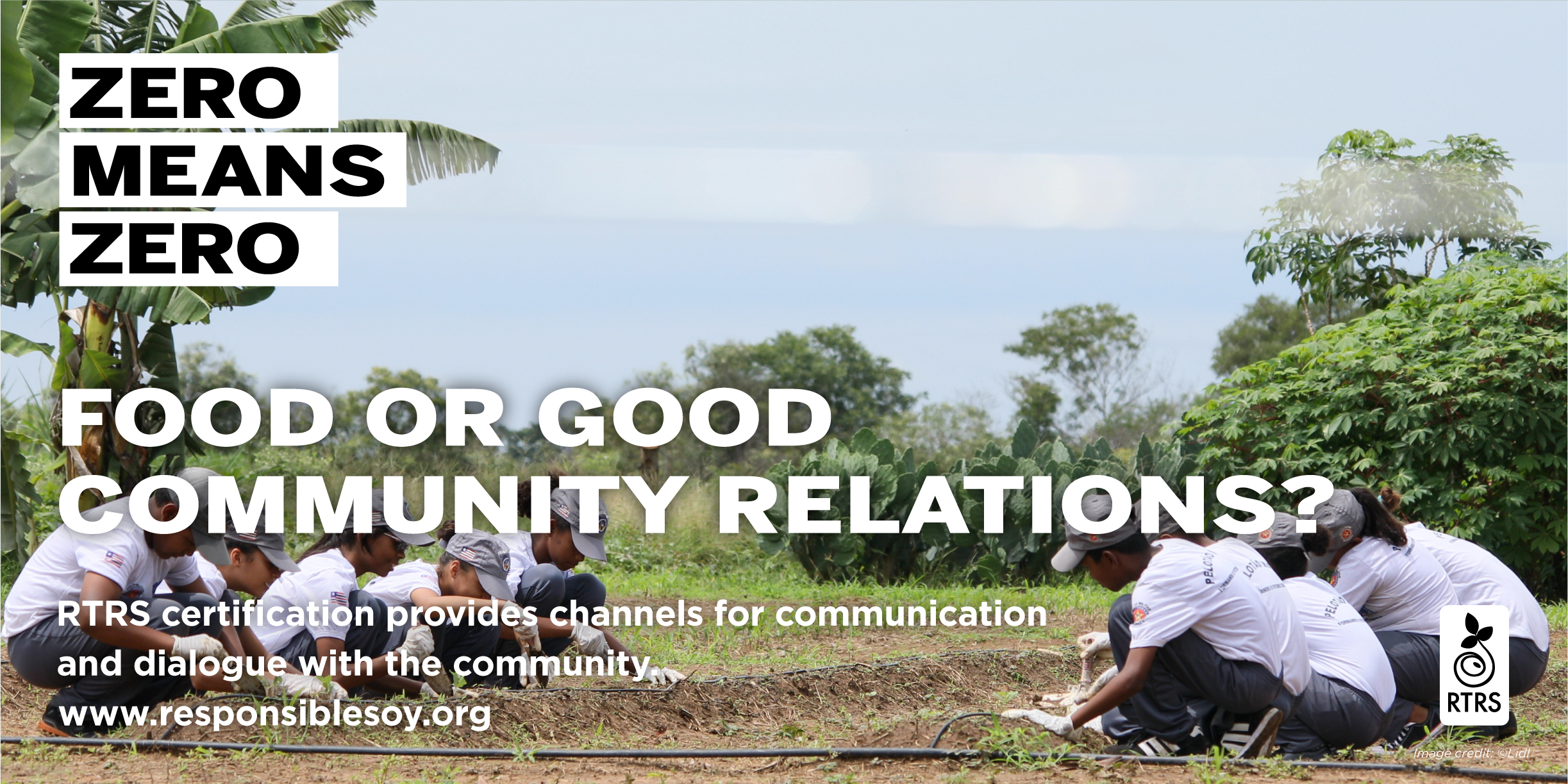

In addition, and in order to continually add value to the certification of soy production and support the transition towards better and more sustainable sourcing, RTRS offers Chain of Custody certification, which includes Mass Balance; Non-GMO segregation; and Biofuels, thus facilitating the flow of RTRS-certified physical soy into the market.
As a global multi-stakeholder platform that brings together players from the entire value chain, RTRS sees value in any intent to put an end to deforestation: soy production should not jeopardize global biodiversity. RTRS, however, strongly urges the stakeholders in the supply chain to go further; social and agricultural practices and aspects associated to soy production (and agriculture as a whole) are hot topics as well. RTRS believes in holistic journeys.
Quick highlights about RTRS and outcomes associated with certification:
– RTRS brings together stakeholders from the entire soy supply chain – from production (5,400 producers certified by RTRS globally) to consumption.
– 4 million tons of certified, third-party verified soy produced in 2019, ensuring:
legal compliance
zero deforestation and zero conversion
zero discrimination
fair labor conditions
zero slavery
zero child labor
protection and respect for the rights of indigenous peoples
– there are different supply chain certification models available:
Chain of Custody certification for RTRS Mass Balance certified physical soy (Site or Country Material Balance).
Chain of Custody certification + Segregation module for non-GMO RTRS-certified soy.
Chain of Custody certification + EU RED module for RTRS-certified soy for biofuel production.
– the Association facilitates the use of the RTRS Trading Platform traceability tool, an online global tool that connects stakeholders in the sustainable soy value chain and allows tracing and record-keeping of RTRS-certified material transactions (credits or physical flow).
As one of the enablers to achieving current and future sustainability goals, we encourage the use of existing and proven tools to boost responsible soy availability and uptake and to drive forward the changes we all strive for.
References:
[1] According to Profundo´s benchmark “Setting the bar for deforestation-free soy in Europe. A benchmark to assess the suitability of voluntary standard systems”, RTRS has included most provisions on optimizing the standard’s level of assurance.
[2] According to Profundo´s benchmark “Setting the bar for deforestation-free soy in Europe. A benchmark to assess the suitability of voluntary standard systems”, among eight standards, RTRS and ISCC Plus come out as the top two for including the largest number of provisions on forests, wetlands and biodiversity protection, in combination with a relatively high level of assurance.


